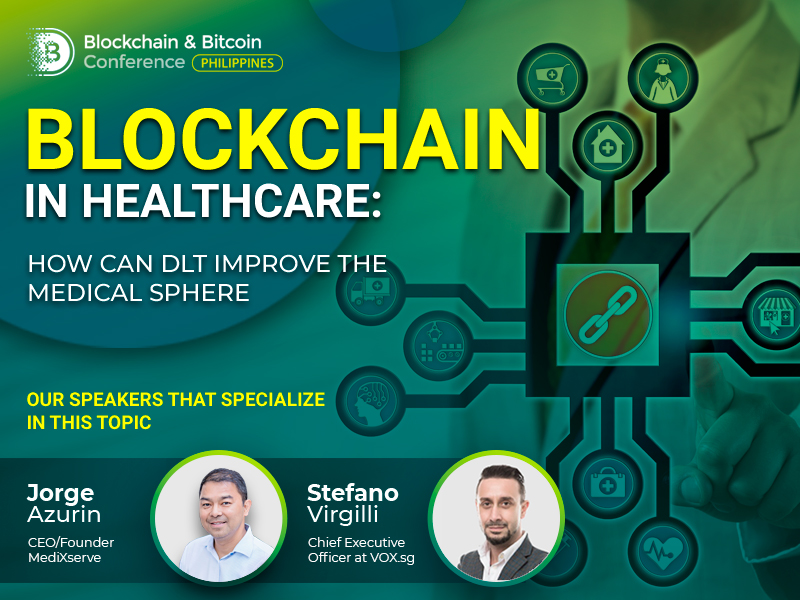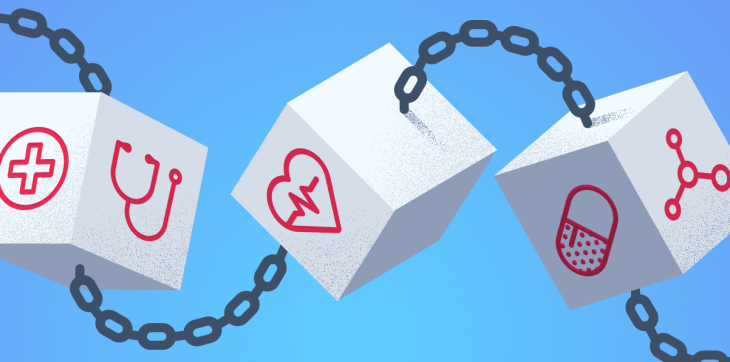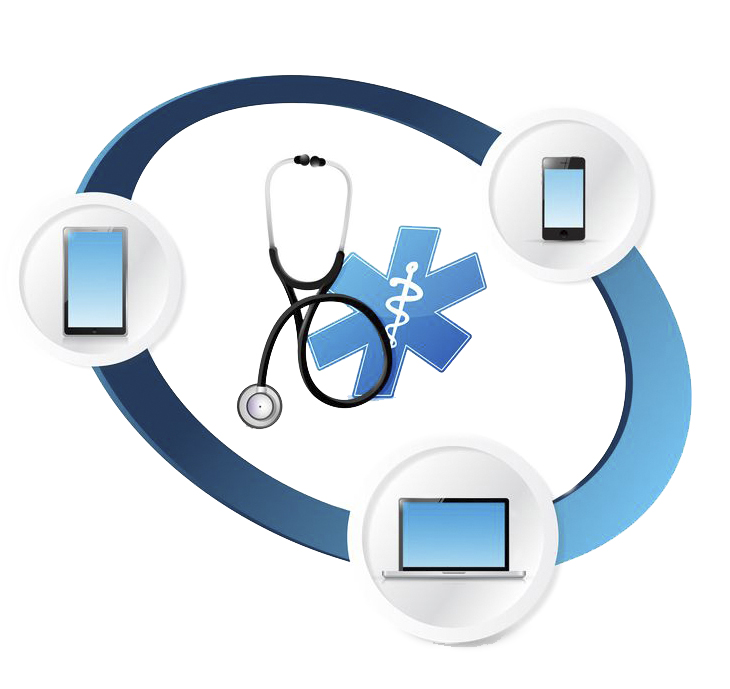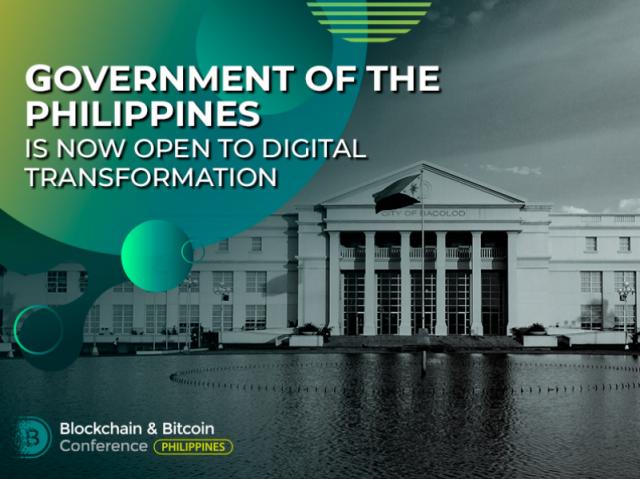Blockchain in Healthcare: How Can DLT Improve the Medical Sphere

According to the research by IBM, around 56% of wellness providers are expected to adopt blockchain in their work by 2020.
We have already mentioned the way DLT can disrupt the medical care sector in one of the articles. More detailed analysis of how DLT is transforming the medical industry is presented below.
Main Problems in the Medical Industry
The current healthcare ecosystem is not complete, as there is no unified system which would contain all the patients’ personal data. The information is stored in different departments which makes it harder to access the full medical history for both doctors and patients themselves.
Also, personal healthcare information should be highly protected, and medical system should guarantee privacy.
More than that, there is a high percentage of fraud existing within the sector. In USA alone, in 2016, there was a medical fraud of $30 million, therefore, the industry should be better protected.
How DLT Will Help the Medical Industry
DLT has a potential to improve the medical industry and provide solution to the arising difficulties.


Traceable and secure records
Storing the medical data with DLT will guarantee that the information cannot be altered. Then, patients will be able to grant permission to medical care providers to access those records, therefore, their personal data will be safe.
Improved data exchange
More than that, the single database will make it easier for doctors to exchange the information between each other and will allow to update the medical records in real time, eliminating the additional paperwork.
Reduction of fraud
Drug counterfeiting is also an important issue which will be solved with DLT. Pharma companies need to track the movement of their drugs from manufacture to end points. It especially refers to the controlled substances.
With the help of DLT’s self-executing contracts, tracking the supply chain will become easier. Moreover, the full record of the drugs transportation will prevent the medications from being stolen. Recipients of drugs will know exactly where they came from and how they got to their endpoints.
 Important Challenge
Important Challenge
Within the medical sector there is the protected health information (PHI). It refers to any data identifying the patient, such as the name, telephone number and address.
Using DLT, patients will get the opportunity to provide access to their information to any organization they want. However, it acts against the Health Insurance Portability and Accountability Act (HIPAA). This regulation is quite strict regarding the PHI disclosure, which means that DLT should be compliant to rules.
How DLT Is Already Used
 Data storage
Data storage
Healthchain is the DLT-based system for keeping health records. It provides users the complete information about their current wellness state and medical recommendations. The access to data is given to medical providers and insurance companies to make the data exchange more efficient.
 Telemedicine
Telemedicine
Telemedicine possibilities are offered by the platform Symptomatic. Users are able to get online consultations from doctors via video conferences, which makes the process of getting medical treatment more convenient. It helps users to store and manage their health data as well.
DLT in healthcare will be discussed in more details at the Blockchain & Bitcoin Conference Philippines.
Jorge Azurin, CEO & Founder at MediXserve, will describe the cooperation of DLT and healthcare. He will talk about the technology’s advantages for the sector and possible risks of DLT integration.
CEO at ICO advisory VOX.sg Stefano Virgilli will deliver the presentation about DLT use cases where he will provide the examples of DLT application in medical industry.



